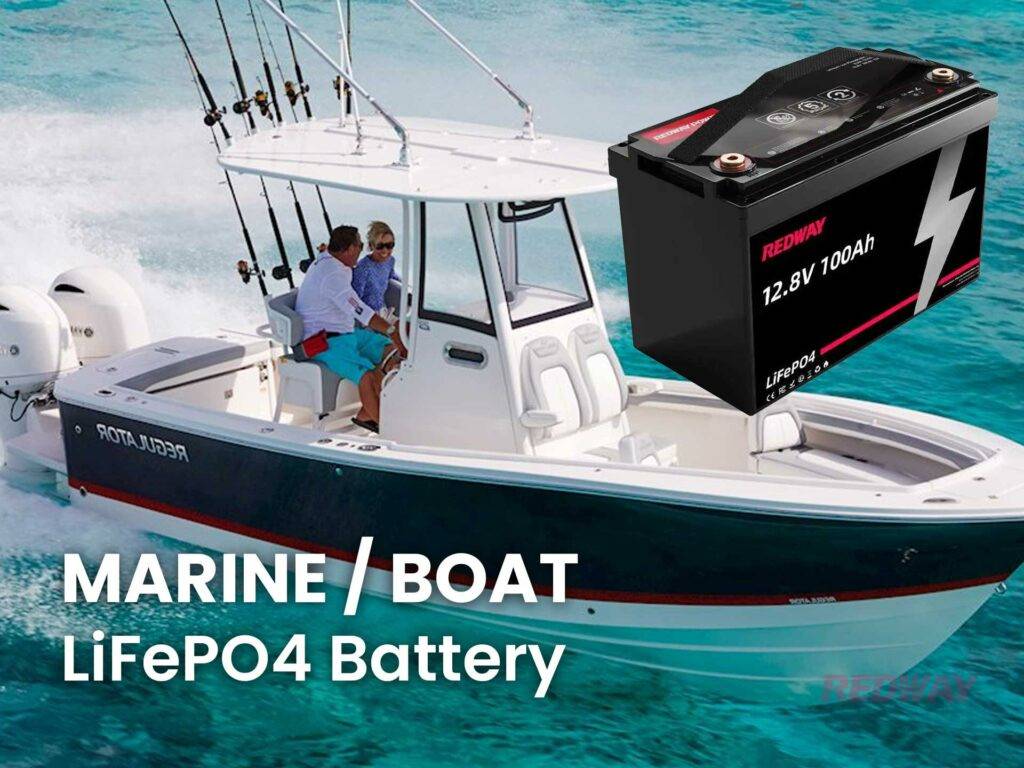LiFePO4 marine batteries have revolutionized the maritime industry with their superior safety profile and robust performance characteristics. In this article, we delve deeply into the factors that make LiFePO4 batteries a preferred choice for marine applications, ensuring their safe and reliable use on watercraft.
Understanding LiFePO4 Battery Chemistry
Lithium iron phosphate (LiFePO4) batteries utilize iron phosphate as the cathode material, which contributes significantly to their safety. Unlike other lithium-ion batteries, LiFePO4 batteries do not pose the same risks associated with thermal runaway. Thermal stability is a crucial aspect for marine batteries, where the operating environment can be demanding.
Thermal Stability and Safety
The thermal stability of LiFePO4 batteries is derived from the strong covalent bonds in the iron phosphate crystal structure. These bonds are much more stable than those in other lithium-ion chemistries. Consequently, LiFePO4 batteries can withstand higher temperatures without decomposing, thus greatly reducing the risk of thermal runaway.
Robust Battery Management Systems (BMS)
Another vital aspect of LiFePO4 batteries is the integration of advanced Battery Management Systems (BMS). A robust BMS ensures that each cell within the battery operates within safe parameters, monitoring for issues such as overcharging, over-discharging, and temperature extremes. This system’s precision and reliability enhance the overall safety of LiFePO4 batteries in marine applications.
Overcharging Protection
Overcharging is a common issue that can lead to catastrophic failures in batteries. However, LiFePO4 batteries are less sensitive to overcharging due to their chemical structure and the protective measures provided by the BMS. This added layer of protection ensures that the batteries maintain their integrity even under less-than-ideal charging conditions.
Suitability for Marine Environments
Marine environments pose unique challenges, including exposure to saltwater, humidity, and varying temperatures. LiFePO4 batteries excel in these conditions due to their resistance to leakage and stable chemistry.
Leakage Resistance
LiFePO4 batteries have a lower risk of leakage compared to traditional lead-acid batteries. The solid and stable nature of the iron phosphate cathode material prevents the breakdown of the battery structure, thus avoiding any potential leakage of hazardous materials.
Stable Chemistry in Harsh Conditions
The stable chemistry of LiFePO4 batteries ensures consistent performance in a wide range of temperatures and humid conditions. This stability is essential for marine applications where batteries are often exposed to fluctuating environmental conditions.
Long Cycle Life and Cost Efficiency
LiFePO4 batteries offer a long cycle life, which translates to thousands of charge and discharge cycles. This longevity is particularly advantageous for marine applications where reliability and endurance are paramount.
Extended Lifespan
The long cycle life of LiFePO4 batteries reduces the need for frequent replacements, making them a cost-effective solution over time. Users can expect consistent performance without the degradation issues commonly seen in other battery types.
Cost-Effective Operation
While the initial investment in LiFePO4 batteries may be higher than other options, the extended lifespan and reduced maintenance costs result in significant savings in the long run. This cost efficiency, coupled with enhanced safety, makes LiFePO4 batteries an excellent choice for marine use.
Elimination of Cobalt Contamination
A significant advantage of LiFePO4 batteries is the absence of cobalt in their composition. Cobalt is not only expensive but also poses environmental and ethical concerns due to the conditions under which it is mined.
Environmental and Ethical Benefits
By eliminating the use of cobalt, LiFePO4 batteries offer a more sustainable and ethically sound solution. This aspect aligns well with the growing emphasis on environmentally responsible technologies.
Manufacturer Guidelines for Optimal Performance
To ensure the safe and reliable performance of LiFePO4 marine batteries, it is essential to follow manufacturer guidelines meticulously. These guidelines cover aspects such as charging procedures, storage conditions, and regular maintenance checks.
Adhering to Charging Protocols
Proper charging protocols must be followed to maintain battery health. This includes using chargers specifically designed for LiFePO4 batteries and avoiding excessive charging times.
Regular Maintenance
Routine maintenance checks can help identify potential issues early and prevent them from escalating. This proactive approach ensures the battery’s longevity and reliable performance throughout its lifespan.
Conclusion
LiFePO4 marine batteries are unequivocally safe for use in marine applications. Their superior thermal stability, advanced BMS integration, resistance to harsh marine conditions, long cycle life, and cobalt-free composition set them apart from other battery chemistries. By adhering to manufacturer guidelines, users can ensure that their LiFePO4 batteries deliver safe, efficient, and reliable performance, making them an ideal choice for powering marine vessels.





